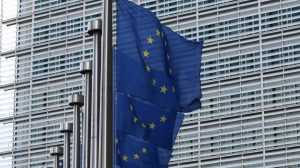Tensions between Kosovo and Serbia have heightened over the past several days following the arrest of a senior Serbian official in northern Kosovo.
The brief detention on March 26 of Marko Đjuric (above), Serbia’s chief negotiator in Kosovo, marked the first such incident since the former Serb province declared independence in 2008.
Mr Đjuric entered Kosovo to attend a meeting in Mitrovica, a largely Serb-dominated city, defying a ban from Kosovo authorities prohibiting him to do so, as well as repeated official warnings ahead of time.
Kosovo’s President Hashim Thaçi said that Mr Đurić had entered Kosovo illegally. Foreign minister Behgjet Pacolli had earlier warned that Mr Đurić would be arrested if he crossed into Kosovo as planned. Kosovan police then used tear gas and stun grenades to break up a protest of ethnic Serbs supporting Mr Đurić.
In response, Serbia has vowed to protect its ethnic kin in Kosovo after reportedly seeking Russia’s advice on how to react to the spike in tension.
Serb President Aleksandar Vucic asked his Russian counterpart Vladimir Putin how to “confront violence and aggression” by Kosovo officials following the arrest and subsequent expulsion of Mr Djuric, Serbia’s chief negotiator in talks sponsored by the European Union, the Kremlin announced on March 28. It added that the call was initiated by Mr Vucic after the Kosovan authorities used force to break up the protests in Mitrovica.
Ethnic Serb parties have also quit the Kosovo government in protest, a move which may destabilise the government in Priština and undermine European Union-mediated talks with Serbia. The Serb groups have said that they will now set up their own legislative body.
The European Commission, in its latest Western Balkans Strategy, makes it clear that Serbia needs to maintain a “strong and sustained political will” in order to reach consensus on the substantive reforms necessary on the rule of law, and the economy, to promote reconciliation. This needs to be underpinned by comprehensive normalisation of relations with Kosovo.
EU-brokered talks have recently stalled over the implementation of a 2013 framework agreement under which Serbia must phase out most of its institutions in Serb-dominated northern Kosovo, in exchange for some autonomy.





Add Comment